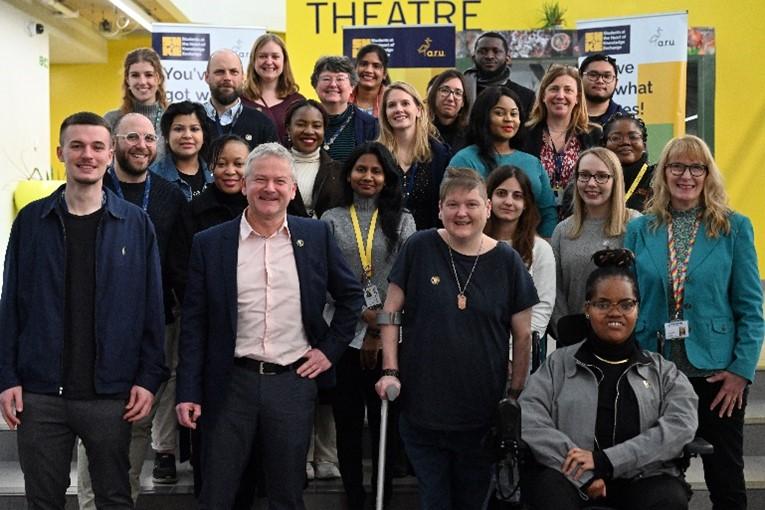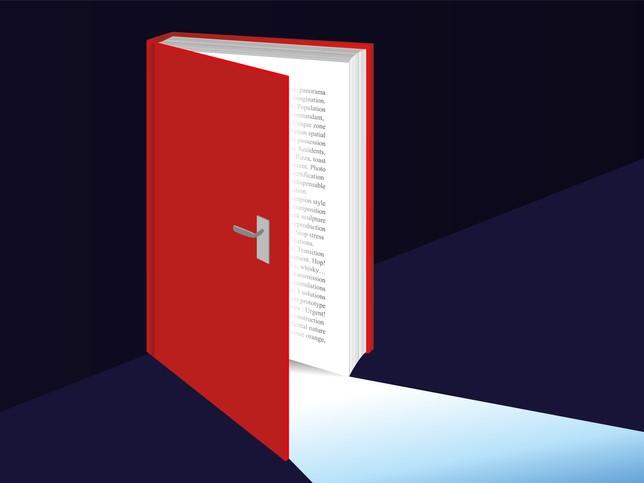Anglia Ruskin University’s Students at the Heart of Knowledge Exchange (SHoKE) programme delivers transformational benefits to students from diverse backgrounds by giving them the opportunity to make an impact on complex social challenges.
SHoKE was initially funded by Research England and the Office for Students as part of the Students in Knowledge Exchange competition in 2020 to explore new ways for disadvantaged students to be voluntarily engaged in knowledge exchange. Challenges are issued by ARU’s SHoKE partners, who include Cambridgeshire County Council, Essex County Council, Essex Police, Diabetes UK and Imperial War Museums. The programme has attracted a disproportionately high number of ARU students from disadvantaged backgrounds but is open to all students.
Conversations with students who are categorised as disadvantaged often reveal complex lived experiences and issues with self-confidence and anxiety that make participation in diverse team activities uncomfortable. This can lead to isolation, impacting their well-being, academic studies and career outcomes. SHoKE programme student outcomes are transformative, leading to increased confidence and enhanced team and project working skills, with many students developing into leaders. Students often express sentiments such as, “For the first time, my voice is heard.”
The voices of diverse students were and continue to be key influences on the development of the programme. Below are some important takeaway lessons from the programme.
Disadvantaged students want to be involved with social issues
The lived experiences of our disadvantaged students often make them more sensitive to social issues. These kinds of initiatives appeal to an inner desire to “do good”, motivating a very high percentage of disadvantaged students to volunteer.
- Resource collection: Why knowledge exchange is important for universities
- Student-led knowledge exchange using Wikipedia
- The formula for a successful knowledge exchange programme
Initiatives such as these boost retention and engagement
Student engagement and retention have improved dramatically since we increased the level of support and training. Students can now benefit from comprehensive practitioner-based training focused on the realities of diverse teamwork and project management. Issuing digital badges on completion has been very well received by students.
Knowledge exchange provides a real-world challenge environment
The consultative process of knowledge exchange between university student teams and partner organisations creates an opportunity for professional problem-solving activities. More importantly, inexperienced team members bonded over time pressures, complex problems and shared experiences.
Diversification is key
Fundamentally, SHoKE celebrates the lived experiences of a diverse team and the creativity and innovation they bring to knowledge exchange activities. By opening SHoKE to all students rather than targeting specific under-represented groups, we have students from all backgrounds providing different perspectives. This is the first time most students will have worked with such a diverse group of people. This facilitates unique experiential learning about the challenges surrounding equality, diversity and inclusion (EDI).
It’s important to be flexible and remove all barriers
To increase student engagement, we must remove barriers and increase accessibility for all students. Many of our disadvantaged students have complex personal lives, juggling jobs and caring responsibilities, so online projects make it easier to take part. Short projects lasting less than two months are less likely to be interrupted by life events and have a higher retention rate.
Community creates a sense of belonging
Many disadvantaged students feel isolated, even on campus. SHoKE empowers students and gives them a key role in our 900-strong community of like-minded people working to make a positive impact in their community. Many students who have taken part have expressed a new-found sense of cohort identity and belonging and have formed relationships that extend beyond the SHoKE projects.
There must be no possibility of failure
Many students express concerns about anxiety and stress around the academic pressures to perform and succeed. We mitigate this by removing all possibilities of failure, with no assessment and no winners or losers. For many students, it is very unusual to be in an environment free of the threat of failure. This empowers them to challenge themselves and to strive to achieve the unachievable. They have nothing to lose and everything to gain.
Students should take positive risks
We encourage students to take a “risk-positive” approach. This reflects how the SHoKE programme is delivered and marketed using calls to action such as “surprise yourself”.
Choice of partners is critical
Students are motivated to work with partners that are committed to EDI, genuinely motivated and have the capacity to deliver real social value. They can personally relate to organisations such as the NHS, the police, county councils and charities.
Issues around marginalisation make perfect student challenges
Diverse student teams provide perspectives and voices that most partner organisations struggle to access. For example, Essex Police challenged students to come up with ways to improve the safety of women, and the outcomes formed a report sent to the Home Office. These were also presented in a workshop delivered to school children across Essex by the Essex Fire Service.
Initiatives such as SHoKE not only have the potential to engage disadvantaged students, but also to transform society.
Neale Daniel is the Students at the Heart of Knowledge Exchange (SHoKE) programme manager at Anglia Ruskin University.
Anglia Ruskin University has been shortlisted for the Outstanding Contribution to Equality, Diversity and Inclusion award in the Times Higher Education Awards 2023. A full list of shortlisted candidates can be found here.
If you would like advice and insight from academics and university staff delivered direct to your inbox each week, sign up for the Campus newsletter.




comment